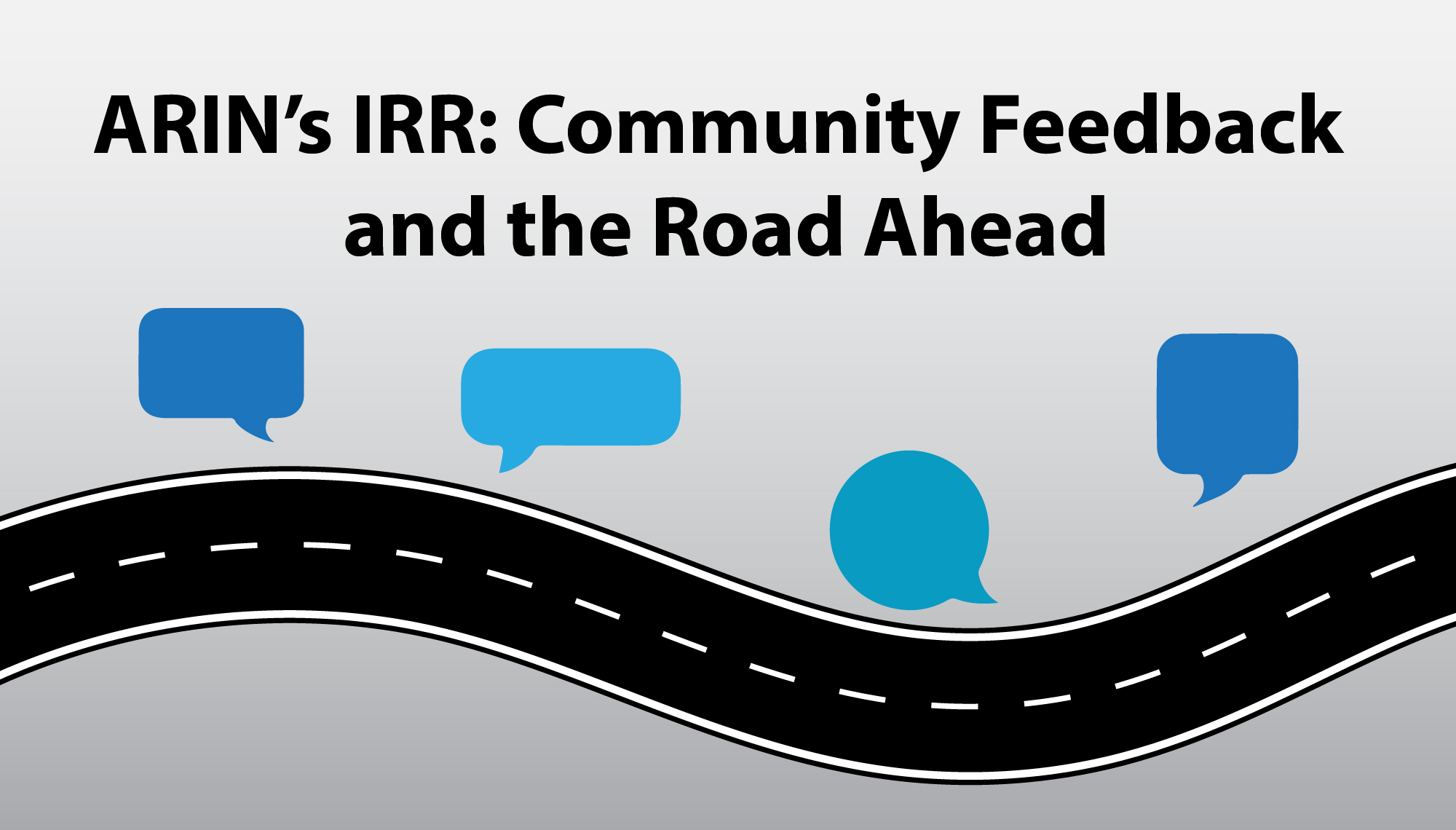
ARIN’s IRR: Community Feedback and the Road Ahead
What is the future of ARIN’s Unauthenticated IRR?
Over the last few years ARIN has been working to create a new and improved Internet Routing Registry (IRR), which was deployed on 10 June 2020. ARIN launched IRR-online, an authenticated and web-based service designed to make it simple for users to publish routing information via ARIN’s website. The IRR-email system was left in place to allow organizations who were already using IRR-email prior to the transition to continue using email-based updates to publish routing information in ARIN’s non-authenticated IRR. New users no longer have access to IRR-email.
On 1 February 2021, we deployed a RESTful API to provide a way to securely automate updates to objects in ARIN’s authenticated IRR service. With the availability of automation for ARIN’s new IRR system, we intend to retire ARIN’s previous non-authenticated, email-based IRR service.
Consulting the Community
We recently completed a community consultation regarding the future direction of ARIN’s IRR. Specifically, we proposed retiring ARIN’s non-authenticated IRR on 30 September 2021. Doing so will achieve multiple important objectives:
- Permanently retiring the IRR-email system and other maintenance-related work associated with maintaining the non-authenticated IRR, thus allowing us to focus on improvements to ARIN’s new authenticated IRR.
- Ensure all ARIN routing data published by ARIN is authorized.
- Drive users toward using the IRR API for bulk updates.
The response from the community was clear: retiring ARIN’s non-authenticated IRR in 2021 would not allow enough time for organizations that depend on data in ARIN’s non-authenticated IRR to make changes to their systems. Therefore, we are moving the retirement date to 31 March 2022 to allow for an extra six months to transition. ARIN believes this appropriately balances the objectives noted above with the community’s concern regarding sufficient time to migrate. We’re going to work as hard as we can to make sure every bit of legitimate routing information continues to be published. ARIN is conducting a proactive engagement to notify customers who currently use our non-authenticated IRR of these changes. We will provide regular reminders and updates to our community and to customers who have objects in ARIN’s non-authenticated IRR, informing them of their options, and providing any necessary assistance so they are prepared for when we cease publishing the ARIN-NONAUTH data stream. For those customers who wish to use a non-authenticated IRR, we can point them to IRRs or 3rd parties that continue to offer that service.
Visibility into our Progress
To ensure the community has visibility into our progress, ARIN plans to periodically release statistics on how many organizations that maintain objects and the count of objects remain in ARIN’s non-authenticated IRR. This will allow you to monitor our progress and confirm that we’re working toward our goal of eliminating NONAUTH objects, while also helping organizations during the transition.
A Superior Experience for All
While this plan will require some ongoing work for ARIN (and you), this will greatly improve both the quality of ARIN’s IRR data as well as the customer experience. As a Regional Internet Registry (RIR), ARIN will offer *only* authorized data, so users can have confidence that the data is legitimate. We know from feedback that our customers find the web/API experience superior to the email experience, and the result will be an IRR that is higher quality both in data and experience. If you have any questions or feedback, please email routing.security@arin.net.
Recent blogs categorized under: IRR
GET THE LATEST!
Sign up to receive the latest news about ARIN and the most pressing issues facing the Internet community.
SIGN ME UP →Blog Categories
Fellowship Program • Caribbean • IPv6 • ARIN Bits • Tips • Updates • Elections • Outreach • Security • RPKI • Public Policy • Guest Post • Grant Program • Data Accuracy • Business Case for IPv6 • Internet Governance • Training • IPv4 • Customer Feedback • IRR


